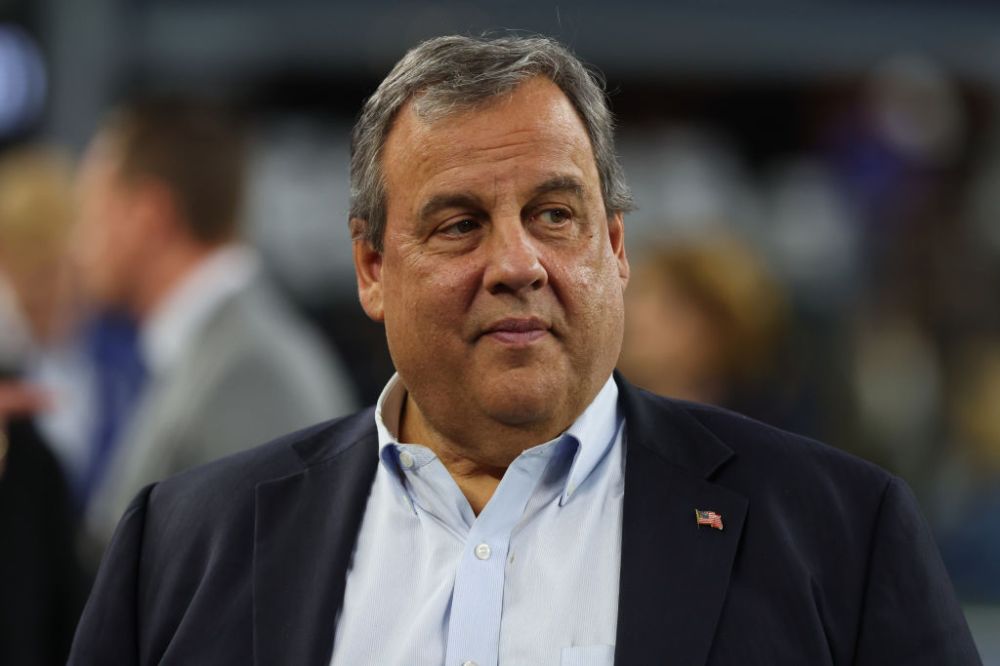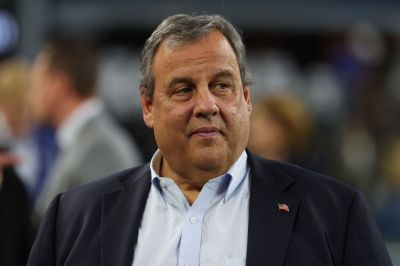Happy Wednesday! The GOP 2024 presidential field grows from one to two today. Only 800 more announcements to come!
Up to Speed
- Nikki Haley is set to officially kick off her presidential campaign at an event in Charleston today, but the former South Carolina governor scooped her own announcement yesterday with a preview video posted online. “Even on our worst day, we are blessed to live in America,” Haley said in the tightly produced clip, which walked through her personal history and track record as South Carolina governor and U.S. ambassador to the United Nations. “The Washington establishment has failed us over and over and over again. It’s time for a new generation of leadership—to rediscover fiscal responsibility, secure our border, and strengthen our country, our pride, and our purpose.”
- Democratic Sen. Dianne Feinstein of California, 89, announced Tuesday that she won’t run for reelection in 2024 but confirmed that she will continue to serve as California’s senior U.S. senator until her term ends in January 2025. Her announcement comes weeks after Democratic Reps. Katie Porter and Adam Schiff formally hopped into the race to succeed her—Democratic Rep. Barbara Lee has also signaled interest in running—and follows months of speculation about her political future amid growing concerns about her mental acuity. Feinstein’s retirement will mark the end of a political era in California. After two decades in local San Francisco politics—she became acting mayor in the wake of the 1978 assassination of Mayor George Moscone and Supervisor Harvey Milk—Feinstein made the jump to national politics with a Senate win in 1992, and has been a major force in Democratic politics for the three decades since.
- After losing to GOP Rep. Lauren Boebert of Colorado by roughly 500 votes last cycle, Democrat Adam Frisch announced Tuesday he’s all in for a 2024 rematch. Frisch’s strong showing in November caught Washington by surprise. Joe Biden had won just 45 percent of the vote in Colorado’s 3rd District in 2020, and national Democrats had largely ignored the race: The Democratic Congressional Campaign Committee (DCCC) spent just $330 in ads on Frisch’s behalf and the Nancy Pelosi-aligned House Majority PAC spent $1,563, according to the late Blake Hounshell in the New York Times. That spending calculus could change this cycle now that national Democrats know Frisch is a competitive candidate. “Lauren Boebert is a MAGA extremist, unconcerned with the needs of everyday Coloradans—she should be worried about a formidable challenge,” DCCC spokesman Tommy Garcia told The Dispatch on Tuesday. “House Democrats will have great offensive opportunities in 2024.”
Chris Christie Sounds Off on 2024
Chris Christie isn’t pulling punches as he mulls a 2024 presidential bid.
That’s hardly surprising for the pugnacious former New Jersey governor, whose bid for the Republican nomination in 2016 flamed out with a sixth-place finish in the New Hampshire primary. It does make him unique. As some Republicans bow out rather than face Donald Trump in the unfolding 2024 contest and as others gingerly tiptoe around the former president—critical one minute, deferential the next—Christie picks a fight with No. 45 every chance he gets.
“I’ve known him for 23 years, and so I’m not the least bit afraid of him,” Christie told The Dispatch during an interview last week, while in Washington for meetings with Republican governors. “The presence of Donald Trump [in the primary] still makes a difference to a lot of people. He didn’t do what the normal one-term president does, which is go away in shame because they’ve lost. He has no shame.”
Corporate bigwigs, elected Republicans, and party activists may have no intention of backing the former federal prosecutor if he mounts a second presidential bid. But many of them are nonetheless quite interested in what he has to say—about President Joe Biden, the country, the Republican Party, and yes, his old buddy Trump, whom he opposes now but endorsed at a critical juncture of the 2016 primary and supported unequivocally in 2020.
These discussions, and Christie’s gig with ABC News as a regular panelist for the Sunday morning public affairs show This Week, are keeping Christie engaged enough. But he’s almost finished putting his four kids through college, he loves the arena, and he’s only 60—a spring chicken compared to a few others with White House ambitions. A decision on 2024, Christie said, will come in the next three months.
“If I get in, I get in because I want to win,” Christie said. “I’m going to be a truth-teller in this race. I think that the American people are hungry for the truth, and they don’t even know what it is anymore.”
For the moment, Nikki Haley is the only major Republican running against Trump. The former South Carolina governor, who served in Trump’s Cabinet as United States ambassador to the United Nations, announced on Valentine’s Day and held her kick-off rally in Charleston Wednesday morning. More Republicans are poised to get in, too.
Former Vice President Mike Pence was in Iowa Wednesday; Sen. Tim Scott of South Carolina begins a speaking tour in Charleston Thursday. Others eying a bid include former Secretary of State Mike Pompeo, New Hampshire Gov. Chris Sununu, and former Maryland Gov. Larry Hogan. But it’s Florida Gov. Ron DeSantis who is commanding the most attention besides Trump, and With good reason: He is the only contender competitive with the former president in early polling.
Christie shrugged. Being the early frontrunner, he said, isn’t worth much until you prove you deserve the title.
“He’s done a good job as the governor of Florida. I don’t think anybody can argue with that, but that’s very different than running for president of the United States,” he said. “None of us really know what he’ll be like on the national stage. If he decides to run, I’ll be interested to watch and compete with him.”
“I’m still waiting for President Jeb Bush and President Scott Walker from ‘16 and none of that happened,” Christie added. “I’m sure as heck not going to worry about what Ron DeSantis is going to do or not do, because none of us really know who he is outside of Tallahassee, Florida.”
What’s Next for Rick Scott?
It’s hard to think of anyone in Washington who’s taken more of a beating in recent days than Florida Sen. Rick Scott.
Fresh from his unsuccessful long-shot bid to replace Sen. Mitch McConnell as GOP Senate leader, Scott has endured a train of indignities from leaders in both parties. Earlier this month, McConnell booted him from the high-profile Commerce Committee, widely seen as an act of political retribution. Then, President Joe Biden singled out a Scott policy plan to accuse Republicans of hostility toward popular entitlements like Social Security and Medicare, first in his State of the Union, then at events in Wisconsin and Florida, Scott’s home turf.
Even as Scott protested that the attack was a smear—he argued all federal legislation should require regular reauthorization, but didn’t think Congress should cut funding for either program—McConnell twisted the knife, telling a Kentucky radio show the proposal was “just a bad idea” that’s “not a Republican plan, that was the Rick Scott plan.”
After his challenge to McConnell, is this how Scott thought things would go? Not exactly, he told The Dispatch in a Tuesday interview: “I thought I would win.”
Recent rhetorical bludgeonings notwithstanding, longtime Florida associates of Scott say it’d be a mistake to write off his political future. “If history is our guide, you should never bet against Rick Scott,” said Susie Wiles, the top Florida Republican strategist who advises former President Donald Trump and managed Scott’s insurgent campaign for governor in 2010. “The people that do, lose.”
Why Florida allies are standing by Scott isn’t hard to explain. Before he was a thorn in McConnell’s side, he was a twice-over American success story in Florida—first in his rags-to-riches personal life, then in the 2010 outsider beginnings of his political career, when he won a surprise upset in the governor’s primary over longtime U.S. Rep. Bill McCollum. Scott went on to win two terms as governor and punch his ticket to the Senate—all nailbiter contests— and cemented his reputation as a capable and hardworking executive and campaigner, unafraid to spend gobs of his own wealth and adept at fundraising from others.
Like plenty of other former executives before him, though, Scott has long struggled to accommodate himself to life in the Senate, where speechification and political triangulation—not his strong suits in anybody’s estimation—are the currency of the realm.
The entitlements dust-up with Biden and McConnell are Exhibit A. Going into last year’s midterm elections, McConnell believed Republicans’ best political bet was to focus their messaging on the supposed excesses of the Biden administration. Scott, who was then serving as head of the Senate’s campaign arm, disagreed: He unilaterally released a lengthy policy proposal he billed as his plan to “Rescue America” in June 2022. Included were several provisions to make the hair of a triangulator like McConnell stand on end—most notably, the assertion that all federal laws should sunset after five years unless Congress voted to reauthorize them.
Talking about it now, Scott seems almost mystified that Biden would use that document to argue that he wants to sunset popular entitlement programs. “This idea that what I said about sunsetting—the idea that it somehow was shutting down Medicare and Social Security—that would be like arguing that if we don’t pass a 40-year National Defense Authorization Act, then we’re shutting down the military every year, because we only pass it once a year.”
“On Social Security, we’ve told people they’re gonna get this, so we’ve got to figure out how to do it,” he added. “On Medicare, we’ve also promised people, so we’ve gotta figure out how they get those benefits.”
But given that the programs don’t need reauthorization under current law, is it really that much of a stretch for Biden to argue such a change would destabilize them? Is it politically out of bounds? Scott thinks so: “Well, he’s a liar. I mean, you know, he’s lied. I mean, here’s a guy that—I think he’s a liar, and I think he’s clueless. There’s nothing in my plan that says that.”
Once upon a time, it seemed plausible that one term in the Senate might be just a brief stepping stone for Scott, his introduction to the national stage before attempting to move back to his comfort zone in the national executive branch. During the 2020 Democratic Iowa caucuses, Scott raised eyebrows by booking ads of his own in the state, a move one consultant called at the time “the starting gun for 2024.”
But as for every other American, 2020 had some curveballs for Scott. Trump’s loss to Biden meant he wouldn’t be term-limited in 2024, and the COVID pandemic unexpectedly turned Scott’s successor, Gov. Ron DeSantis, into a national Republican superstar. Challenging two Florida Men at once in the presidential primary isn’t in the cards now: “No, I’m running for Senate,” he said Tuesday.
Still, there are advantages to being a misfit in a body like the Senate—it can free you up to pick fights others won’t touch.
Scott didn’t topple McConnell, and his bid rankled some, coming as it did after his role in the party’s disappointing 2022 campaign. But his 37-10 showing was still the most striking challenge to his grip on authority that the longest-serving Senate leader in history has ever faced. McConnell’s comments that Scott’s sunset plan could hurt his reelection prospects notwithstanding, Scott goes into his 2024 reelection campaign the heavy favorite; Florida Republicans up and down the ballot ran away with their races last cycle. And McConnell’s ongoing broadsides have helped him remain something of a vessel for some of the other discontented members of the caucus.
“The majority leader ought to be supportive of our incumbents,” Wisconsin Sen. Ron Johnson told The Dispatch this week. “I think Sen. Scott has done a good job in Florida. I think Floridians appreciate the fact that he’s forthright and honest with them, and I know from my personal involvement with Sen. Scott, his only interest is in saving those programs.”
Eyes on the Trail
- Super Bowl schmoozewatch: Running for president is a costly affair, so it’s notable that Sen. Tim Scott, who is eyeing a bid, spent the evening of the Super Bowl mingling with some National Football League team owners, as well as some coaches, players, and fans, at State Farm Stadium in Glendale, Arizona. NFL owners are the sort of deep-pocketed donors who can help finance presidential campaigns and affiliated super PACs. Scott kicks off what is considered the soft launch of an expected presidential campaign Thursday evening with a speech in Charleston.
- Welcome PAC teases 2024 strategy: One Democratic political action committee we’re watching in Colorado’s 3rd District and beyond is the Welcome PAC, a funding group that invests on behalf of center-left candidates trying to oust Republican incumbents in redder-leaning swing districts. “There are at least a dozen districts similar to Frisch’s where Democrats conceded seats in 2022,” Welcome PAC co-founder Lauren Harper told The Dispatch. “If Democrats want to win back the House majority in 2024, they’ll need more Adam Frisches competing to win in vulnerable red seats across the country.”
- Marie Gluesenkamp Perez kicks off first term with fundraisers: Speaking of self-styled center-left candidates ignored by national Democrats until the end of the cycle, one incumbent we’ll cover closely again this cycle is first-term rural Democratic Rep. Marie Gluesenkamp Perez of Washington’s 3rd District (Trump +4), formerly held by six-term, pro-impeachment GOP Rep. Jaime Herrera Beutler. The DCCC spent roughly $300,000 on her behalf last cycle at the end of her race. This cycle, she’ll need all the money she can get to beat fringe Republican Joe Kent, who lost to her in November by less than a point and who has already declared a 2024 rematch. One of Gluesenkamp Perez’s top donors says he’s already “full bore” on fundraising ahead of 2024. “I sent a solicitation letter out to my 100 biggest donors around the country on her behalf,” David Nierenberg, an investment manager and former fundraiser for Mitt Romney’s 2012 presidential campaign, told The Dispatch on Monday. Nierenberg said he hosted a large fundraiser for her roughly three weeks ago, and is planning to host a joint fundraiser with Democratic Rep. Earl Blumenauer of Oregon on Gluesenkamp Perez’s behalf in the spring.
Notable and Quotable
Speaking with reporters in the U.S. Capitol a few minutes after her retirement announcement dropped on Twitter Tuesday, Sen. Diane Feinstein appeared taken by surprise that her statement had already gone public. You can listen to the moment here.
“I haven’t made that decision. I haven’t released anything,” Feinstein told reporters before a staffer interrupted her to remind her that her office put out a statement. “You put out the statement? I didn’t know they put it out.”
“So, it is what it is,” Feinstein went on. “I think the time has come. I have a whole other year of things that are underway. I expect to achieve them—I hope. And so we’ll see.”
Let Us Know
In the 2016 presidential election, Chris Christie was most notable for his cruise-missile destruction of the Marco Rubio campaign at a New Hampshire debate. Do you think he could play a similar role this time around?
Sign up here to receive Dispatch Politics in your inbox.








Please note that we at The Dispatch hold ourselves, our work, and our commenters to a higher standard than other places on the internet. We welcome comments that foster genuine debate or discussion—including comments critical of us or our work—but responses that include ad hominem attacks on fellow Dispatch members or are intended to stoke fear and anger may be moderated.
With your membership, you only have the ability to comment on The Morning Dispatch articles. Consider upgrading to join the conversation everywhere.